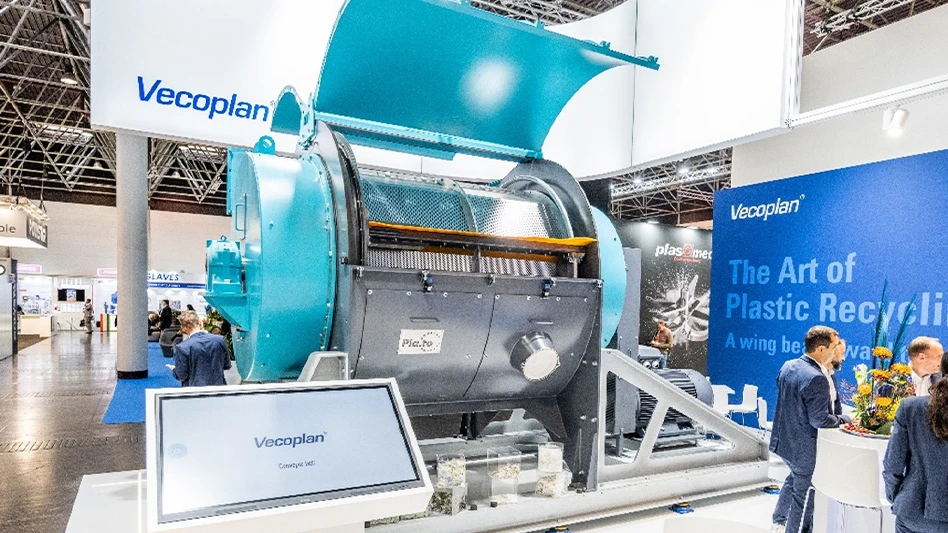PLASTIC RECYCLING INFRASTRUCTURE INSUFFICIENT, GROUP SAYS
The Container Recycling Institute (CRI), Arlington, Va., believes that both governments and industry should be doing a bit more to encourage the recyclability of plastic bottles.
The organization released its own commentary in the “1997 National Post-Consumer Plastics Recycling Rate Study,” which was conducted by R.W. Beck and Associates Services Group LLC on behalf of eight trade groups. Among the CRI’s observations:
l “Current plastic bottle recovery infrastructures cannot keep pace with the dramatic increases in resin production, particularly for PET bottles. If projections by plastics recycling expert Dennis Sabourin of Wellman, Inc. hold true, the volume of PET resin produced in the U.S. in 2000 will be more than twice that produced in 1995.”
l “ . . . the majority of PET soda bottles recycled were recovered through deposit systems in ten states and one city. At a recovery rate of 80%, 353 million pounds (54% of all PET soda bottles recovered) were recovered through deposit programs.”
l “If the major soft drink companies (Coca-Cola Co. and PepsiCo) were to use 25% recycled content in their PET soda bottles, they could boost the PET soft drink bottle recycling rate from the current rate of 36% to 61%, the total PET bottle recycling rate from 25% to 40% and the total plastic bottle recycling rate from 24% to 30%. There is only one problem . . . current plastic PET bottle infrastructures are not capable of creating the supply of PET bottles needed to satisfy the additional demand for recycled PET. This can be accomplished through voluntary or mandatory deposit systems that provide a monetary incentive to recover plastic bottles for recycling.”
NYLON CARPET RECYCLING PLANT TO BE BUILT
AlliedSignal Chemicals Intermediates, Chester, Va., and DSM Chemicals North America Inc. have announced that they have begun construction on a nylon carpet recycling facility that the companies are touting as the first of its kind in the world. The $80 million plant, which will keep more than 200 million pounds of carpet out of landfills each year, will be completed in the fall of 1999.
The August, Ga. facility will go by the name Evergreen Nylon Recycling. It will produce 100 million pounds-per-year of caprolactam, which is made from nylon carpet and is used to make “type 6” nylon fibers and resins.

Explore the January 1999 Issue
Check out more from this issue and find your next story to read.
Latest from Recycling Today
- Equipment from the former Alton Steel to be auctioned
- Novelis resumes operations in Greensboro, Georgia
- Interchange 360 to operate alternative collection program under Washington’s RRA
- Waste Pro files brief supporting pause of FMCSA CDL eligibility rule
- Kuraray America receives APR design recognition for EVOH barrier resin
- Tire Industry Project publishes end-of-life tire management guide
- Des Moines project utilizes recycled wind turbine blades
- Charter Next Generation joins US Flexible Film Initiative





